Normal Punctuation Worksheets for Ages 7-8
10 filtered results
-
From - To
Boost your child's writing skills with our Normal Punctuation Worksheets designed specifically for ages 7-8! These engaging worksheets provide interactive exercises that help young learners master essential punctuation marks such as periods, commas, question marks, and exclamation points. By practicing through fun activities, children will enhance their writing clarity and expression. Each worksheet is tailored to encourage critical thinking and creativity, making learning enjoyable. Perfect for at-home learning or classroom use, these resources are ideal for reinforcing punctuation rules in a way that resonates with kids. Equip your child with the tools they need for effective communication—explore our worksheets today!
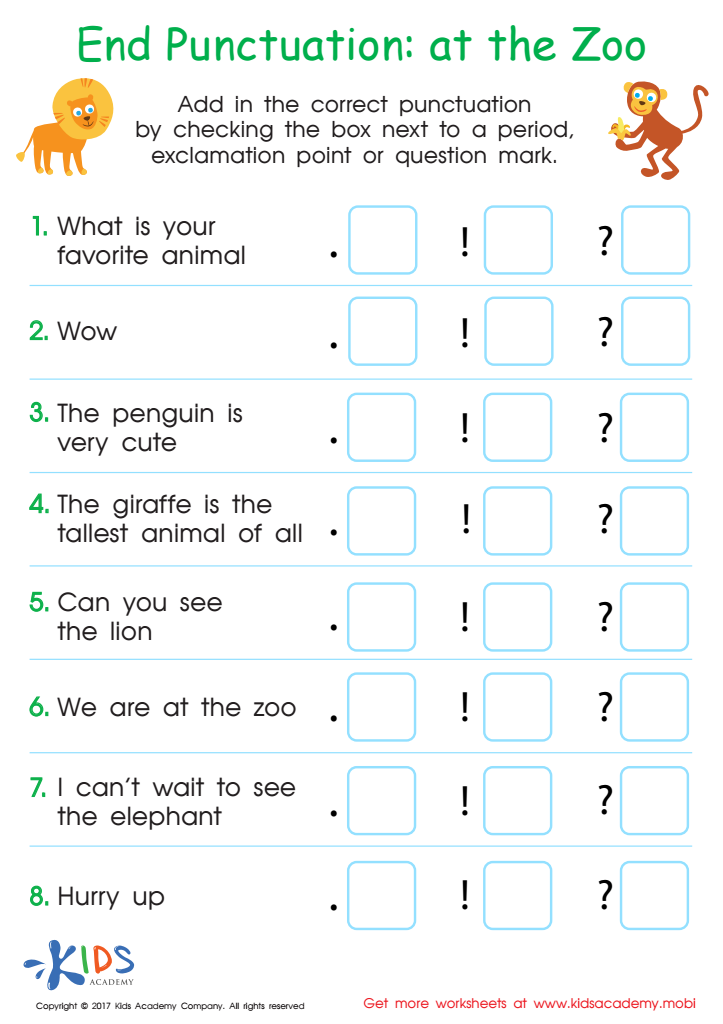

End Punctuation: At the Zoo Worksheet
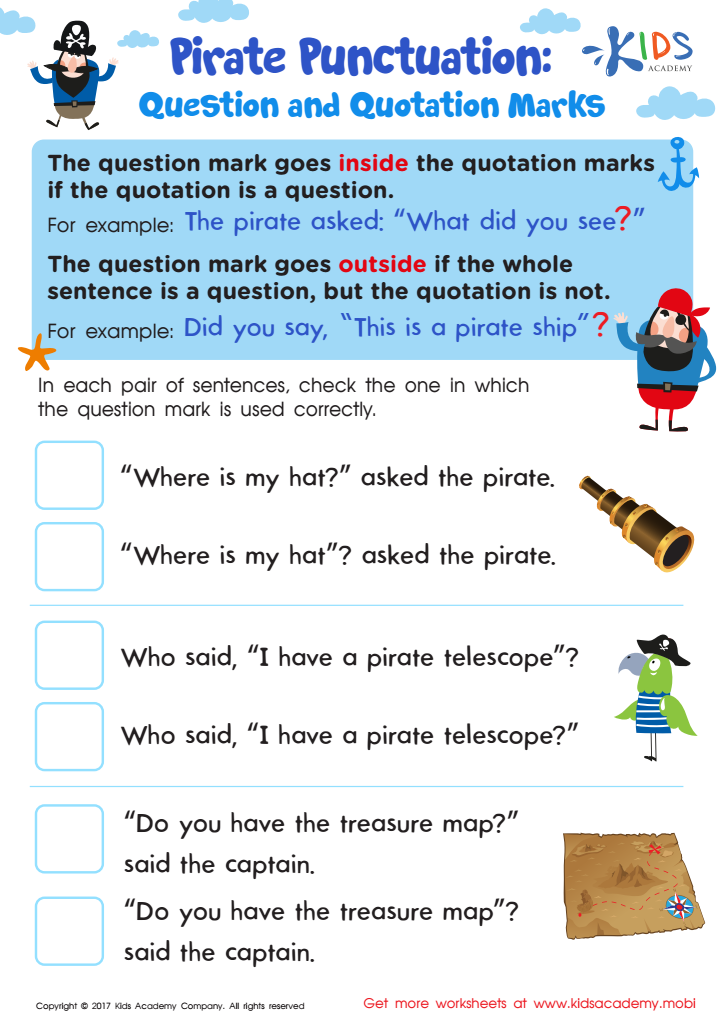

Question and Quotation Marks Worksheet
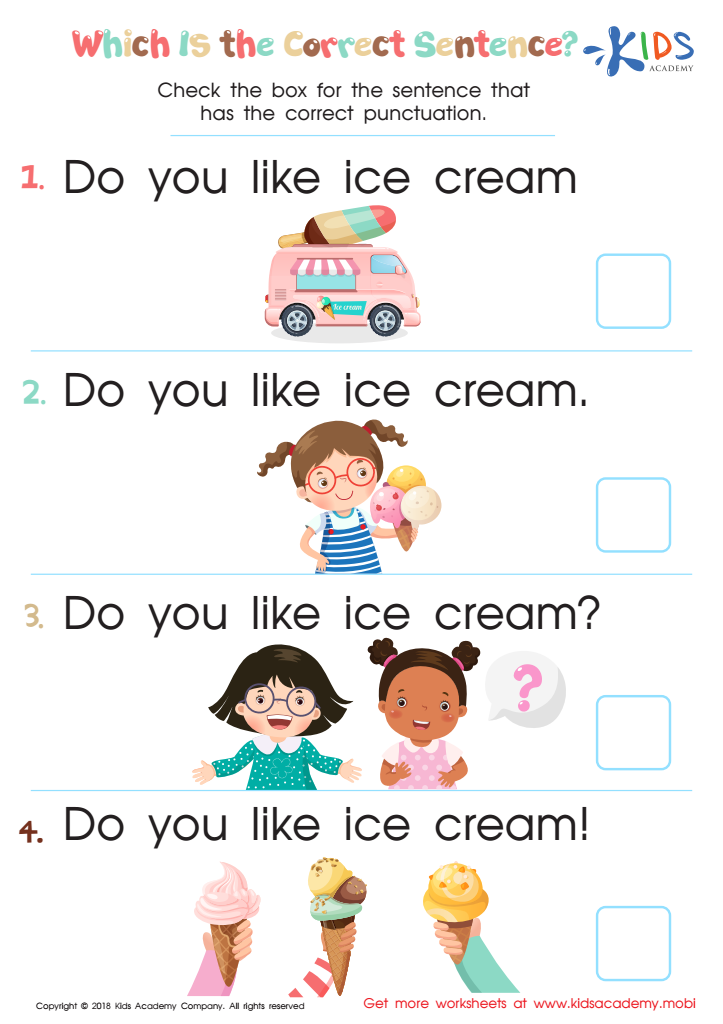

Which is the Correct Sentence? Worksheet
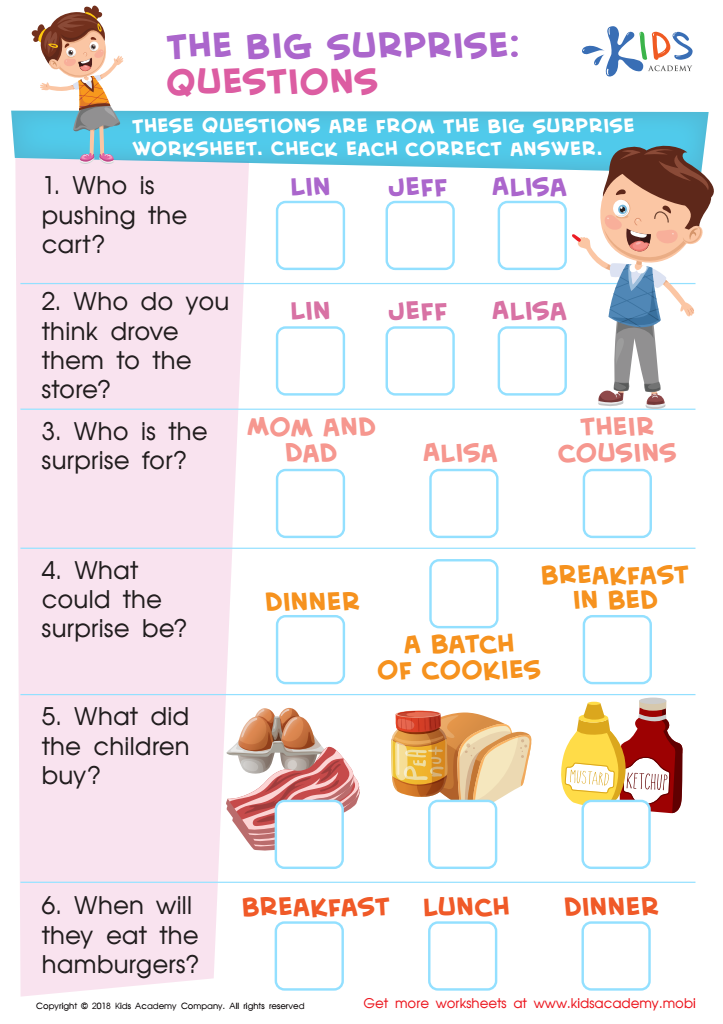

The Big Surprise: Questions Worksheet
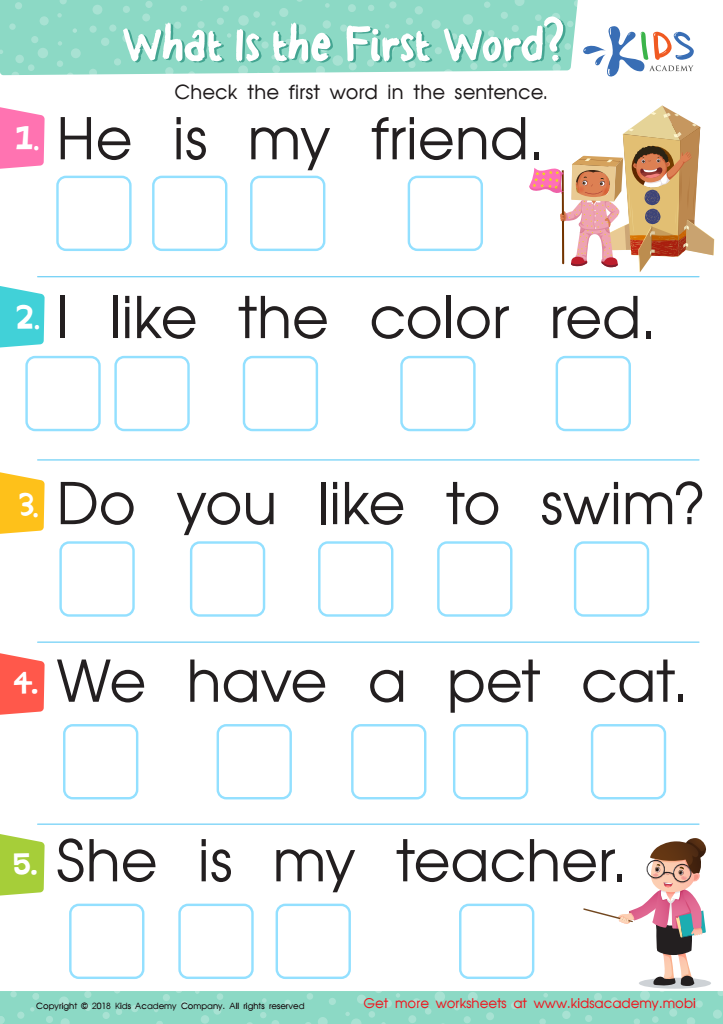

What is the First Word? Worksheet
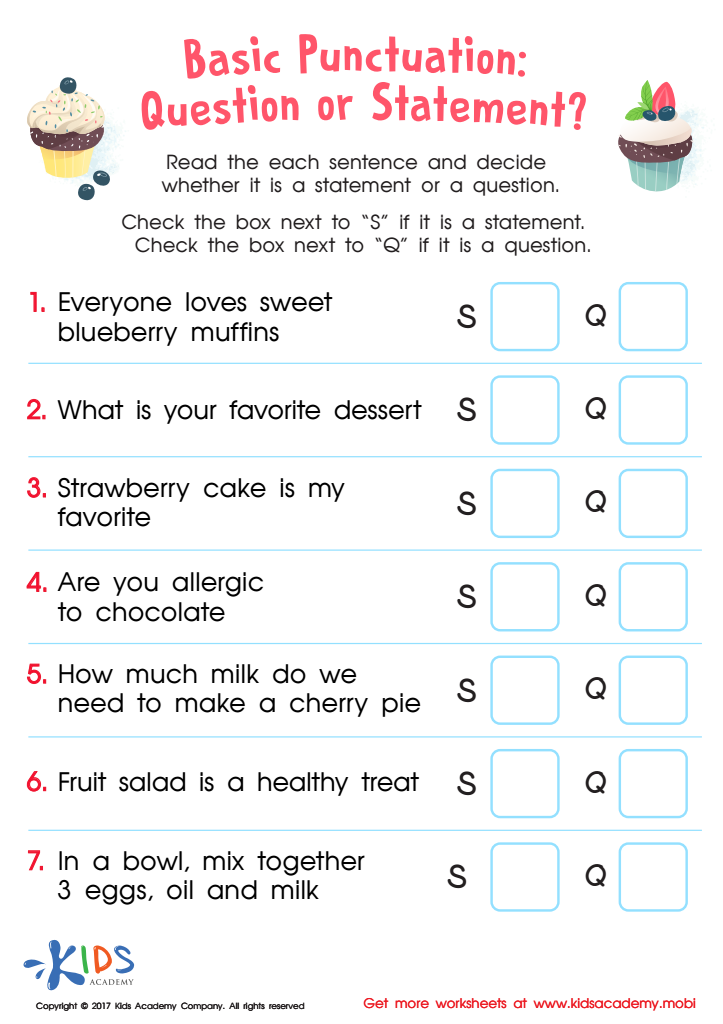

Basic Punctuation: Question or Statement Printable
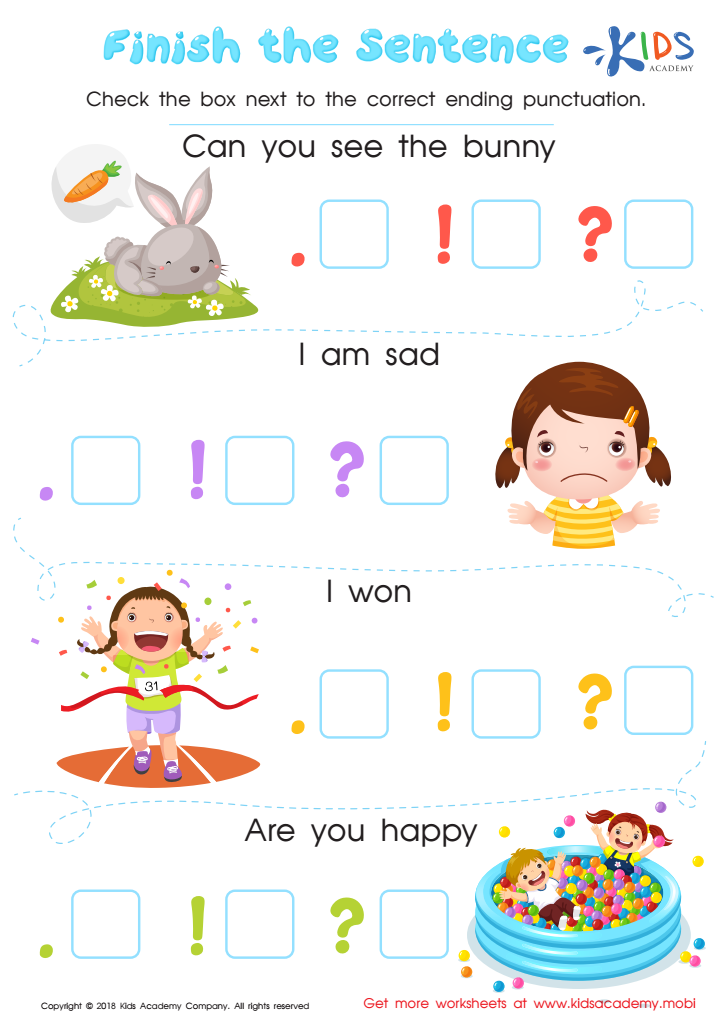

Finish the Sentence Worksheet
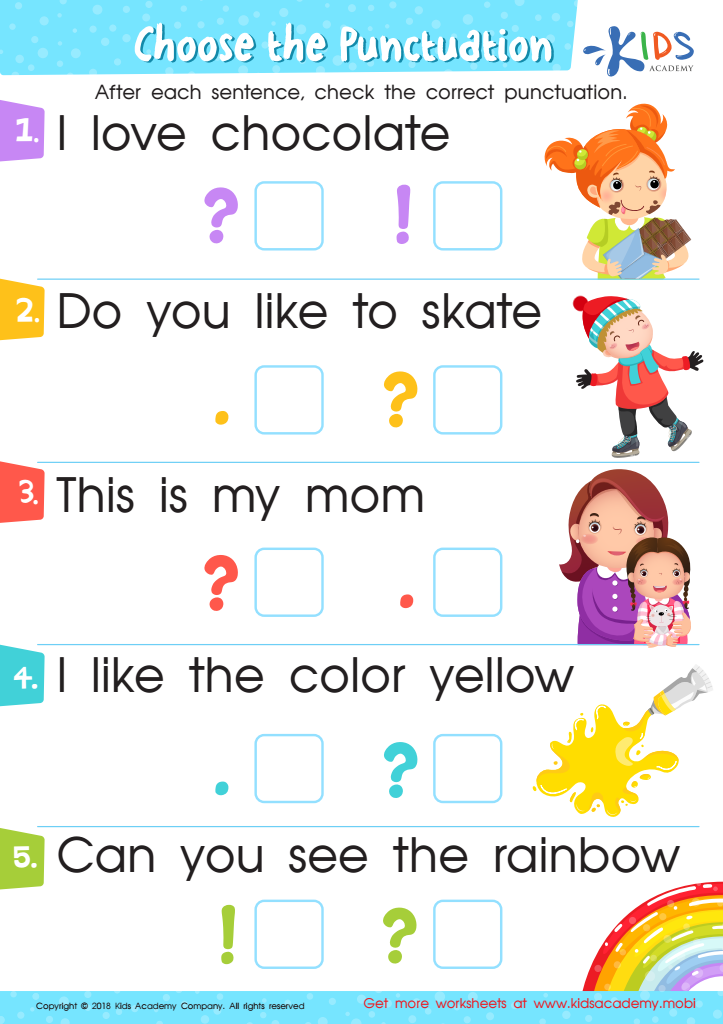

Choose the Punctuation: Assessment Worksheet
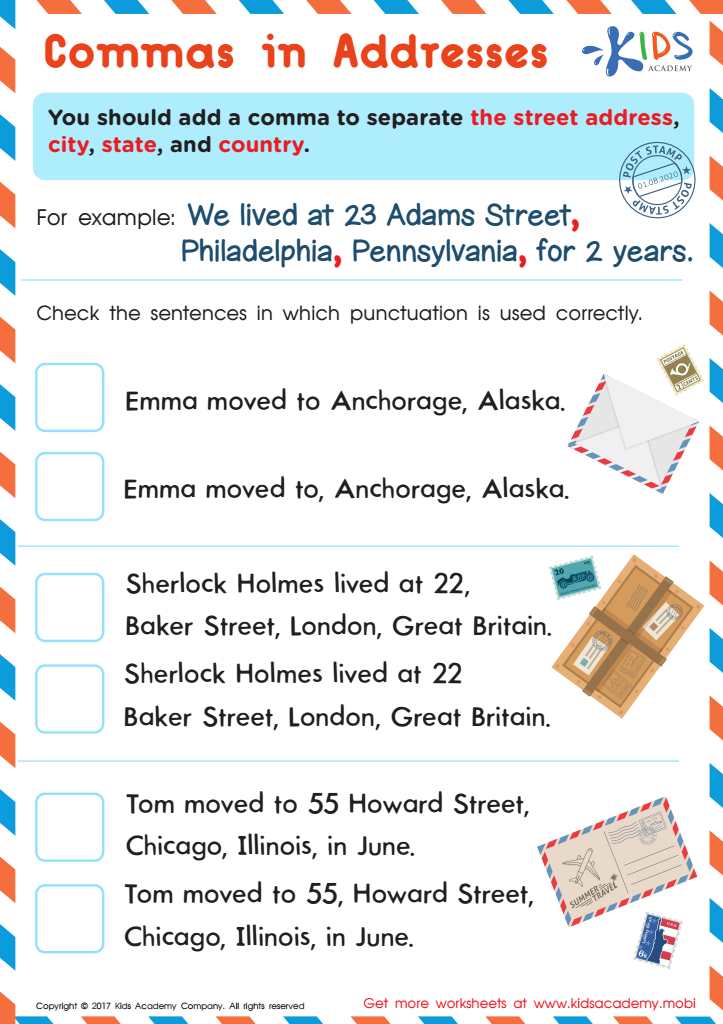

Commas in Addresses Worksheet
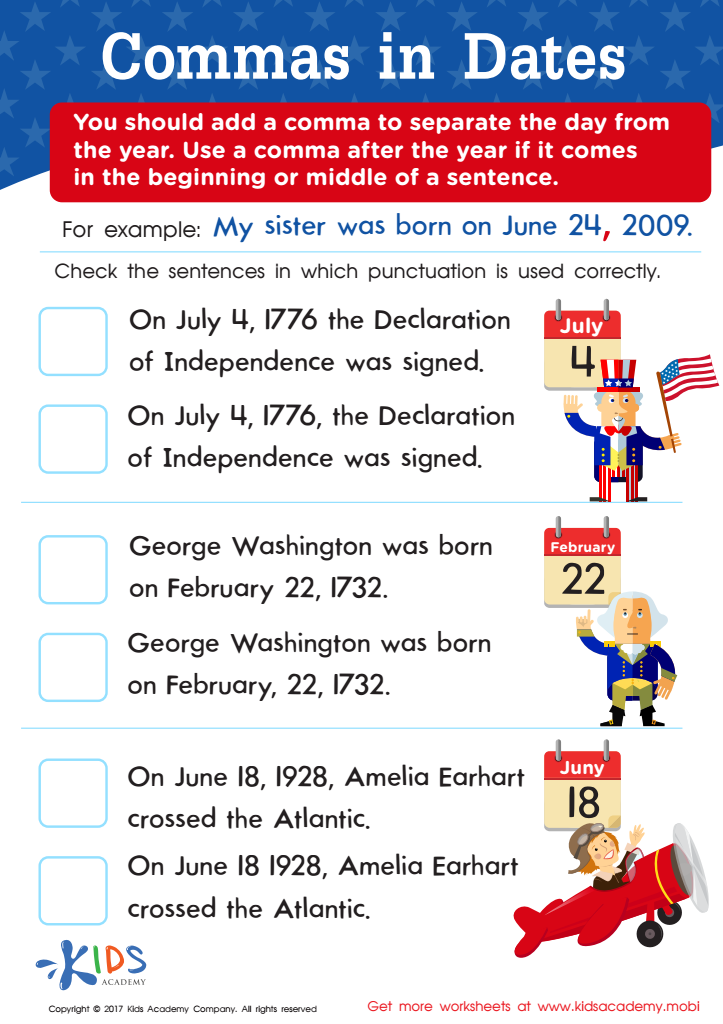

Commas in Dates Worksheet
Normal punctuation is crucial for children aged 7-8, as it lays the foundational skills necessary for effective communication. At this age, students transition from learning basic writing mechanics to crafting more complex sentences. Proper punctuation helps clarify meaning, aids in reading comprehension, and conveys enthusiasm or emotion, fostering richer interactions in both spoken and written contexts.
Teachers and parents should recognize that mastery of punctuation is linked to a child's overall literacy development. Punctuation marks like periods, question marks, and commas help organize thoughts, indicate pauses, and convey tone. When children understand these nuances, they become more adept at expressing themselves and interpreting others' messages.
Moreover, solid punctuation skills can enhance academic performance. As children advance in school, they are expected to produce more extensive written work. Without a grasp of punctuation, their ideas might be misinterpreted or lack coherence, affecting grades and confidence.
Encouraging children to practice punctuation also stimulates critical thinking, as they learn to analyze their writing for clarity and effectiveness. Therefore, fostering a strong understanding of normal punctuation in young learners is not just about writing correctly; it’s about equipping them with essential tools for lifelong communication success.
 Assign to My Students
Assign to My Students





















